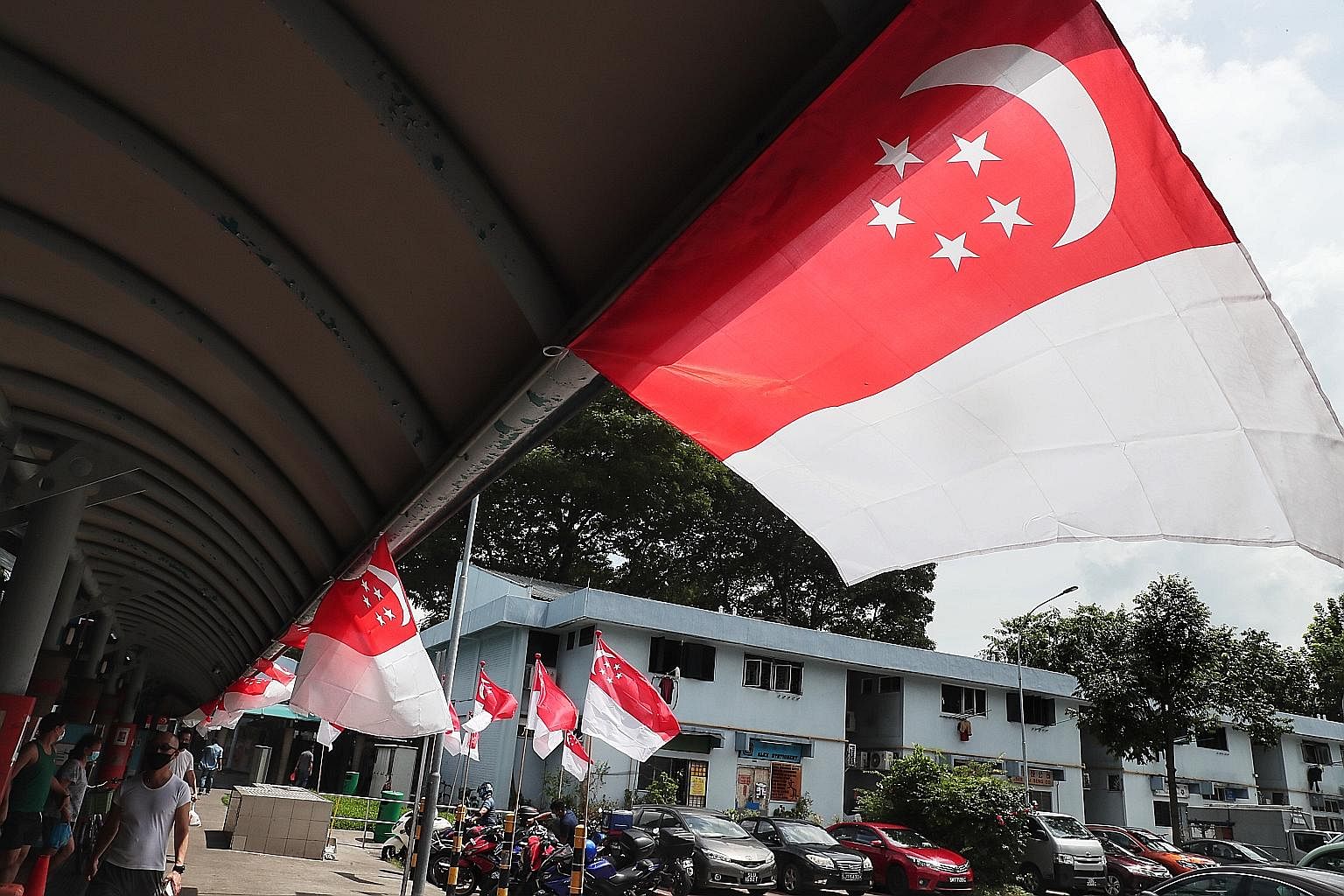I remember the first time I voted - I was 22, excited and had followed all the rallies and speeches.
The voting centre was just across the road from home, and early in the morning on Polling Day, I got in line to have my identity card checked, shuffled into a classroom and, in a voting booth, marked a cross on my ballot paper. It was over in maybe 15 minutes, and I remember leaving the school thinking how something so important could feel so anticlimactic.
That was in 2011, and unbeknownst to me at that time, I was one of the two million voters who played their part in a watershed election in Singapore's political history. In the election that year, the Workers' Party (WP), led by Mr Low Thia Khiang, bested the People's Action Party (PAP) in Aljunied GRC, marking the birth of a more confident opposition in Singapore.
I gained a new appreciation for politics and the power of the vote after that - and I raise this now because General Election 2020 is looking like it could also be a potential watershed.
The PAP has cast the coming polls as a "crisis election", with its secretary-general and Prime Minister Lee Hsien Loong saying the stakes are high. "Sometimes, like now, we have an election during a crisis. These are elections that focus everyone's mind and they can also change the course of history," he said on Tuesday as campaigning kicked off.
On the other hand, the WP stressed the importance of checks and balances in Parliament, warning that the presence of elected opposition members could be wiped out if voters flock to safety in the PAP.
What do voters think?
For most people of my generation, growing up, all we have known is a Singapore that has been exceptional.
It is a point that has been drummed into us since we were children. Our country, we are told, has the world's best airport and airline, an efficient civil service, clean and safe public housing, the best food (don't fight me on this), and in each of our hands, we hold a passport that opens doors to countries around the world and reminds us just how exceptional ours is.
But the pandemic has changed everything and forced a once-confident generation to take an introspective look at our country. That eight-week circuit breaker in April and May felt a bit like living in a dystopia. The streets were emptied, office lights were snuffed out and coffee shops, once alive with chatter and the tinkle of metal spoons on glass, went quiet.
Those more fortunate among us worked jobs that could be done from home, while others did deliveries or signed up to serve on the front lines to try and make ends meet. It raised questions about whether society valued enough those among us who perform essential work - cleaners, nurses, bus drivers, deliverymen and others - whose toil it had until now taken for granted.
The pandemic exposed inequalities in society, showed how the poor had less resources to cope in times of crisis, and made us wonder whether we could build a more equitable, fairer society.

And now, with the country set to face its worst recession since independence and job losses looming - the economy is projected to contract by between 4 per cent and 7 per cent - more existential questions are being asked.
Will we be able to keep our jobs? Will we be able to afford homes and support and raise our families? Will our children also grow up knowing an exceptional Singapore? Speaking to Singaporeans, and not just young ones, in the run-up to the general election, these are the questions that they want answered.
I can hear it in the concern of the 23-year-old university graduate, who has sent out 20 job applications and has not received a single offer.
You feel it in the frustration of the 53-year-old business owner, who wonders when business will recover so he can support his family.
And also sense it in the worry of the 31-year-old civil servant, who wonders what this tiny island will look like for his children, who face all these global challenges - climate change, technological disruption, geopolitical tensions.
This circuit breaker has been a disorienting experience, and as the country comes back to life again, it is at this precise moment that Singaporeans are going to the polls, to choose leaders who can help Singapore navigate an uncertain future. Globally, there has been a flight to leadership, with people looking to their leaders for answers.
The PAP Government has done its best to steady the ship, rolling out programmes to subsidise wages and keep people in jobs. It has promised to create some 100,000 job opportunities to address unemployment, and asked Singaporeans to give the party a strong mandate so it can take the country into the post-Covid-19 future.
On the other hand, opposition parties like the WP have also set out their vision of what Singapore should be. These promises will be scrutinised in the days ahead as parties pick up the pace on the hustings, but one thing is clear - an exceptional Singapore needs exceptional leaders.
Covid-19 has highlighted the rifts and fractures in our society and it seems to me that it is pressing now for Singapore to pick leaders who can unify, not divide. Whether from the PAP or opposition, an exceptional Singapore needs leaders who represent the best in them.
• Danson Cheong is ST's China correspondent currently in Singapore to cover the 2020 General Election.

